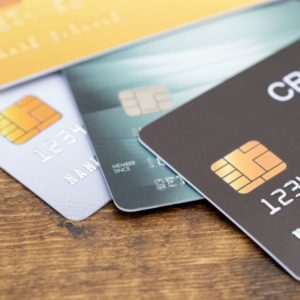 Most American banks have moved to chip embedded credit cards. I must say, when I returned to the States after living abroad twelve years, I was surprised that my bank did not already have chip credit cards. While overseas, I learned that chip & pin cards were more secure. Instead of a clerk trying to look at a scrawled out signature and guess if it matches what is on the back of a credit card, the chip & pin technology means a person can only use a card if they know the secret pin number. That makes chip & pin cards easy and secure.
Most American banks have moved to chip embedded credit cards. I must say, when I returned to the States after living abroad twelve years, I was surprised that my bank did not already have chip credit cards. While overseas, I learned that chip & pin cards were more secure. Instead of a clerk trying to look at a scrawled out signature and guess if it matches what is on the back of a credit card, the chip & pin technology means a person can only use a card if they know the secret pin number. That makes chip & pin cards easy and secure.
As such, I was pleased to get my first American chip card. However, just recently I learned that many US banks did not go chip & pin as they did in other countries. Instead, US Banks went with a “chip & signature” card. That means, the secure pin step is still not happening here in the States. That is disappointing.
What does this mean for Americans traveling abroad with their credit cards? They may or may not work, depending. And this is NOT the surprise I want to get then I go to pay for a service I’ve already used.
So what do I need to know about using my credit card overseas?
Some banks did go with a true chip & pin card. If you are lucky to be with a bank that did this, then you need to have your pin number when you travel (call your bank to get it if you don’t already have it). Then when you charge something you will be asked to enter your pin number. Two banks that have true chip & pin cards are Wells Fargo and Barclaycard.
Unfortunately, banks such as Chase went with chip & signature. Their advice to customers traveling abroad is to skip the step for entering the pin code, and simply tell overseas merchants that you don’t have a pin, but are happy to sign. This may work when there is a person running your credit card charge through (and they know how to run a non-pin card), but it won’t work in automated ticket kiosks. As such, make sure you have a back-up plan for what to do if it does not work… namely have local currency!
Some banks even say if you use a pin with a credit card, you will be charged as a cash advance (usually means an immediate 25% interest rate). Ugh. They have so missed the point; that chip & pin cards are actually more secure, and instead have complicated the entire process. This is a big bummer for those of us that travel internationally.
What does all this mean for you personally?
First and foremost, it means you need to call your credit card provider and find out exactly how you should use your card when traveling. Can you use a pin or not? What fees will they charge you if you do?
Second, read this blog by Rick Steves. It discusses how to use the new American chip & signature cards in Europe: www.ricksteves.com/travel-tips/money/chip-pin-cards.
Third, consider changing to one of the banks I mentioned above that have true chip & pin cards. Or open an account with Charles Schwab bank, as their debit card is also a credit card that requires a pin, so it will work when traveling internationally as well. Plus they rebate all ATM charges! A big BONUS for travelers!
